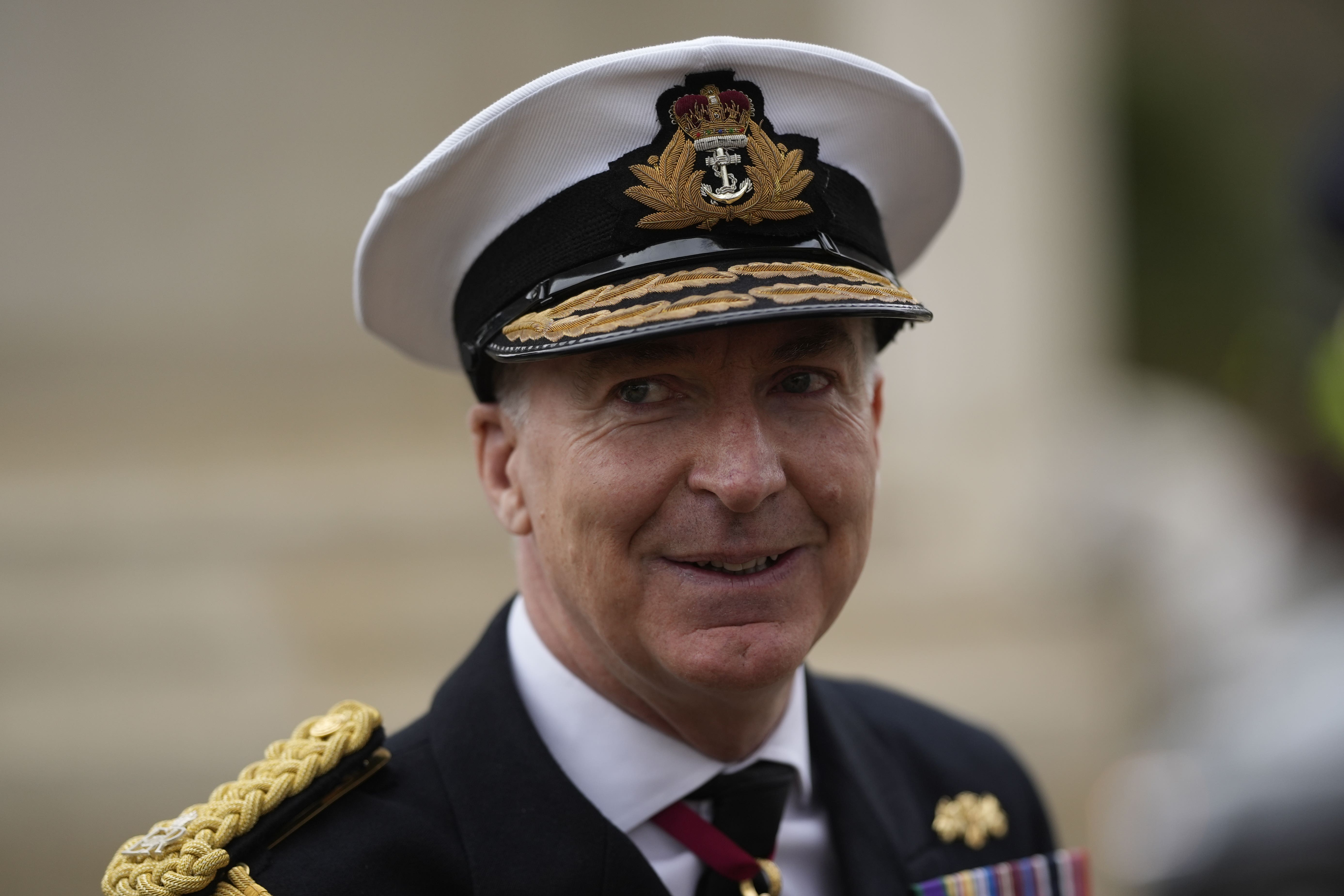Killing civilians in Afghanistan would increase weight of enemy – defence chief
Admiral Sir Tony Radakin was called to give evidence as part of the inquiry into alleged unlawful special forces killings.

The UK’s chief of defence staff has told the inquiry into alleged murders by special forces in Afghanistan that killing civilians would “increase the weight of the enemy”.
Admiral Sir Tony Radakin was called to the witness box at the Royal Courts of Justice on Monday to give evidence to the inquiry, which will examine whether special forces had a policy of executing males of “fighting age” in the war-torn country between 2010 and 2013.
Afghan families have accused UK special forces of conducting a “campaign of murder” against civilians, while senior officers and personnel at the Ministry of Defence (MoD) “sought to prevent adequate investigation”.
The defence chief told the investigation that the policy of the International Security Assistance Force (ISAF), a multi-national mission in Afghanistan of which the UK was a major part, was of “gaining the consent and support of the population”.
Counsel to the inquiry Oliver Glasgow KC said: “Was the policy, where possible, to avoid civilian casualties?”
Sir Tony replied: “So the purpose of the policy was to gain the consent and support of the population but, as a part of gaining that consent and support, it emphasised the need to avoid civilian casualties.”
Mr Glasgow said: “Presumably because getting their consent and support is hard to achieve if at the time civilian lives are being lost?”
The defence chief replied: “Yes.”
The risk is that you lose hearts and minds of the people you are trying to persuade and you actually generate more insurgents and you increase the weight of enemy
Mr Glasgow continued: “Presumably there is also a danger where civilian lives are lost that not only do you lose the hearts and minds but you give force to the insurgency against you?”
Sir Tony replied: “Yes, it works both ways.
“So the risk is that you lose hearts and minds of the people you are trying to persuade and you actually generate more insurgents and you increase the weight of enemy.”
The policy of attempting to gain the support of the Afghan population was brought in by US general Stanley McChrystal when he took charge of ISAF in 2009.
Mr Glasgow continued: “Because the danger of a civilian casualty is that not only do those who are immediately affected by it lose any support for the Nato process, but it can be used to generate greater support for the insurgency, because those who want to are able to say civilians are being killed by Western forces, therefore Western forces aren’t welcome here?”
“That’s correct,” the defence chief replied.
Sir Tony added that the policy was “crucial to counter-insurgency operations”.
The inquiry’s chairman Sir Charles Haddon-Cave then interjected: “Does this translate into more recruits, potentially?”
Sir Tony replied: “Yes, more recruits for the insurgency because you’re losing the consent and support of the population and if you then have a population that is clearly against you the risk is that the insurgency increases and is about a struggle, then, to stay in the area, because you have got an insurgency that is trying to eject you.
“You’re then in a very difficult position because you’re constantly battling to just maintain your ability to stay in the area, never mind persuading the population to gain their trust and support.”
The inquiry will look at allegations that “numerous” killings were carried out, as well as the alleged cover-up of illegal activity and inadequate investigations by the Royal Military Police (RMP).
Two RMP investigations, codenamed Operation Northmoor and Operation Cestro, will be scrutinised by the inquiry.
No charges were brought under Operation Northmoor – a £10 million investigation which was set up in 2014 to examine allegations of executions by special forces, including those of children.
Operation Cestro saw three soldiers referred to the Service Prosecuting Authority, but none of them was prosecuted.
The inquiry will now hear submissions on behalf of the families of 33 people, including eight children, who were allegedly killed by special forces.
The inquiry continues.
Bookmark popover
Removed from bookmarks